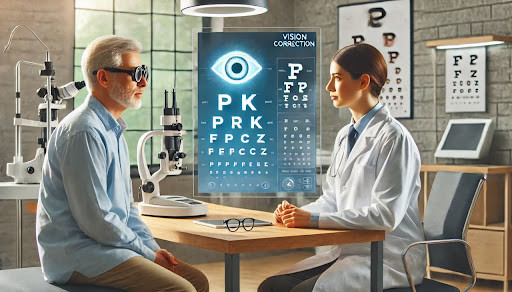How Ophthalmologists Help Protect Your Eye Health for Life
Your eyesight is one of your most vital senses, and maintaining healthy vision throughout your life requires expert care and regular attention. Ophthalmologists play a critical role in safeguarding your eye health by diagnosing and treating a wide range of conditions, providing surgical interventions, and offering preventive prk care. As medical doctors who specialize in eye and vision care, ophthalmologists combine advanced medical knowledge with cutting-edge technology to manage everything from routine eye exams to complex surgeries.

One of the key responsibilities of ophthalmologists is early detection of eye diseases. Many serious conditions, such as glaucoma, diabetic retinopathy, macular degeneration, and cataracts, develop silently and may not show symptoms until they have already caused permanent damage. Regular comprehensive eye exams performed by an ophthalmologist can catch these diseases in their earliest stages, when treatment is most effective. Early diagnosis is particularly important for individuals with risk factors such as diabetes, hypertension, or a family history of eye disease.
Ophthalmologists also play a pivotal role in managing age-related vision changes. As people grow older, they become more susceptible to conditions like presbyopia, cataracts, and dry eye syndrome. An ophthalmologist can offer a tailored plan to address these changes through corrective lenses, medication, or surgical solutions. For example, cataract surgery—one of the most common and successful procedures worldwide—is typically performed by an ophthalmologist, restoring clear vision to millions of patients annually. With their specialized training, these professionals ensure optimal outcomes while minimizing risks.
In addition to treating diseases, ophthalmologists are central to emergency and trauma care for the eyes. Accidents involving sharp objects, chemicals, or blunt force can threaten vision or even lead to permanent blindness if not promptly addressed. Ophthalmologists are trained to handle such emergencies, offering precise diagnosis, immediate treatment, and, if necessary, surgical repair. Their expertise helps preserve sight in situations where time and accuracy are critical, making them indispensable in both hospital settings and specialized eye care centers.
Preventive education is another vital aspect of an ophthalmologist’s role. They counsel patients on best practices for maintaining eye health, including proper nutrition, UV protection, screen time management, and the importance of protective eyewear during sports or work. For individuals with systemic diseases like diabetes or autoimmune disorders, ophthalmologists coordinate with primary care physicians to monitor and mitigate eye-related complications. By fostering awareness and encouraging proactive care, they help patients adopt habits that support long-term visual health.
Finally, technological advancements in the field of ophthalmology continue to enhance patient care, and ophthalmologists are at the forefront of applying these innovations. From laser-assisted surgeries to retinal imaging and gene therapy, modern ophthalmic tools allow for more accurate diagnoses and more effective treatments than ever before. Ophthalmologists undergo continuous education to stay current with these developments, ensuring their patients benefit from the best available care. Their combination of clinical expertise, surgical skill, and dedication to lifelong learning positions them as the guardians of vision across the lifespan.
In conclusion, ophthalmologists are essential allies in preserving eye health from childhood through old age. Their ability to detect disease early, provide expert treatment, manage emergencies, educate patients, and utilize advanced technology makes them invaluable in the journey toward lifelong visual wellness. Regular visits to an ophthalmologist not only protect your eyes today but ensure that your vision remains strong for the years ahead. Investing in your eye health with the guidance of an ophthalmologist is one of the smartest choices you can make for your overall well-being.

Post Comment